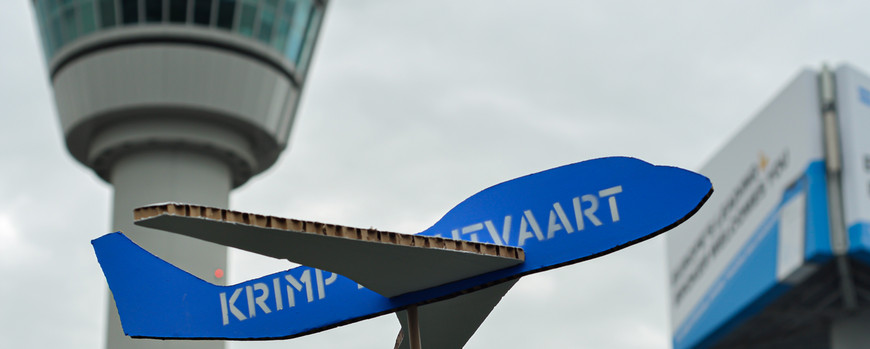Our goals and research questions
Main and specific objectives
The PROTEST-AIRT project has two main objetives:
- To understand the role that airports as spaces of dissent and targets of dissent (including airlines), while considering the economic and social relevance that global air transport has for the neighboring cities/Nation-states.
- To understand how the externalities/benefits of global air transport are discussed in the local, regional (European) and global public sphere, by following the narratives/discourses related to the emergence of social movements critical of the aviation industry.
In order to secure these scientific goals, the project includes four specific objectives:
- To contextualize and document the emergence of social movements campaigning against new airports, airport expansions and airlines both at the global and European level (through case analysis). This objective includes a historical and global review of airport conflicts, with a particular emphasis in four European cases.
- To understand the process of ‘specialization’ within social movements, observing how individuals/groups become experts in local/regional/national legislation, technological innovations, climate science, etc., while also discussing how the activists minimize the impact of ‘fake’ news or ‘inaccurate’ information.
- To create high-impact grounded theory on airports as spaces of dissent and airports/airlines as target of dissent, highlighting both the ways in which these spaces are (self-)branded and produced; as well as the counter-narratives proposed by local and global dissent groups aiming at re-signifying these spaces within the context of the climate crisis.
- To describe the strategies and identify the main narratives employed by airports and airlines to communicate their public image (airport branding) to their users/customers and the local citizenship, particularly observing the production of information related to the negative effects of the air transport industry (with an explicit focus on the climate emergence) and their potential solutions.
Which airport conflicts are included?
The PROTEST-AIRT project is interested in maintaining a historical and world-system perspective apropos the global air transport industry. In this sense, some airports conflicts that took place since the 1960s have been revised as part of our theoretical analysis. Two examples of these conflicts include the resistance against the Narita International Airport in Tokyo (Japan), which is also known as the Sanrizuka struggle. Other example in United States comes from Boston, where local women known as The Maverick Street Mothers protested against the expansion of now Boston Logan International Airport, becoming part of the global history for environmental justice. While aircraft noise and land grabbing (for example, through evictions) have been common in many of these airport conflicts, the climate crisis has become a global concern for social movements campaigning for aviation degrowth. More recently, social movements opposing airport projects in Germany (the Montagsdemonstrationen at the Frankfurt Airport), United Kingdom (including the decades-long resistance against Heathrow Airport in London) and France (with the successful movement in Notre-Dame-des-Landes in Brittany) have been well-documented in many academic studies, media stories and other publications created by the dissenting citizenship.
Four European cases
Beyond this theoretical and historical analysis of airport conflicts, the PROTEST-AIRT project will study four recent airport conflicts in Europe:
- Berlin Brandenburg Airport - The new airport in Berlin has been in the spotlight for many reasons, including their delayed opening and some corruption scandals. However, the conflict about this airport has included its role in the current climate crisis, with groups such as Am Boden Bleiben protesting both at the airport and in digital spaces. More recently, climate activists have glued themselves to the tarmac, causing temporary disruption.
- Schiphol Airport - Located near Amsterdam, Schiphol Airport has become the target of many social movements, some of them concerned about the increasing aircraft noise experienced by the local inhabitants, but connecting this local impact to the 'big picture' of the climate emergency. In 2019, a Protestival action organized by Greenpeace Nederland took place at Schiphol Plaza, with activists demanding air transport degrowth and improvements for rail transport. The collective SchipholWatch has been collecting data to denounce the impact of the airport in the region, and of air transport globally.
- Bristol Airport - The expansion of Bristol Airport was considered closed, but now the future of this project is uncertain. In 2020, a 'historic' decision was taken by the North Somerset council officers, rejecting the project because of its future climate impact. But an appeal to a High Court has been presented by the airport developers and the project is back on the table. Local groups such as Extinction Rebellion Bristol or Stop Bristol Airport Expansion have been campaining against the airport with creative tactics, including an ostrich with its head deep in the sand.
- Barcelona-El Prat Airport - In September 2021, thousands of people protested the projected expansion of the Barcelona-El Prat Airport, demanding the protection of threatened green spaces such as La Ricarda. For years, groups as Prou Soroll have denounced the excessive aircraft noise affecting the local inhabitants, and other groups such as Zeroport have been campainging against any expansion of both the airport or the port in Barcelona. The final decision about the expansion has been temporarily suspended.
Although these four European conflicts will be prioritized to understand the emergence of social movements advocating for the preservation of the planet and of their local communities, other airport conflicts in Europe will be informally tracked. These conflicts include airports in countries such as Sweden (Stockholm Arlanda Airport), France (Nantes Airport) and other cases in Germany (Leipzig Airport) or the Netherlands (Eindhoven Airport).
A Global South perspective
Because air transport is a global system, there is need to understand how the projected expansion of an airport contributes to the creation of a new or expansion of an airport in other places, including the so-defined Global South. Moreover, because countries in parts of Africa, Latin America and Asia do not have alternative infrastructure for transport of people or key products, some airport conflicts have been emerging in these regions. Recently, local inhabitants in Perú have been protesting the planned airport in Chinchero, near Machu Picchu. Social movements have been also fighting new airports in Dominican Republic and in Mexico. In India, local farmers have been denouncing land grabbing and expulsion as a result of the projects in places such as Azamgarh, in Uttar Pradesh. The PROTEST-AIRT project will keep track of these conflicts in the Global South, including them as part of the theoretical analysis of the global resistance against the air transport industry.


